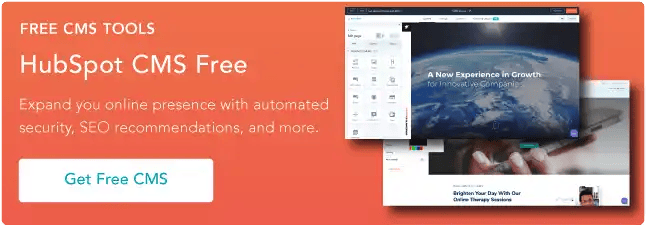
Sure, you understand the need to have some web presence, but you might not believe that an effective website is going to make that big of a difference for your particular business — especially if you’re already plenty profitable.
What do you think? Do you need a website to run a successful business?
This article discusses reasons why having a business website is a wise investment and why you sometimes don’t need a website.

Does My Business Need a Website?
Many business owners ask, “Since I have a small business with a small workforce, and since we don’t sell anything online, do I need a website?”
The answer is YES!
If you have a business, you should have a website to avoid losing business to competitors that already have one.
Furthermore, are you sure you can’t sell your product online? COVID-19 has altered the retail landscape, with millions of shoppers online looking for everything from books to clips to houses to natural gas and more. So while you dither, your competitor has likely seen how effective a website can be for their business.
You definitely don’t want to be left behind.
But you might ask, “Doesn’t my Facebook page count?”
Do I Need a Website if I Have a Facebook Page?
It’s common for businesses to rely on Facebook or other social media platforms as their main advertisement channel. And these channels offer advantages.
For example, they help build a larger audience and even help you carry out market research. However, a Facebook page should not replace your business website. Here are some reasons why.
1. You Don’t Own Your Facebook Page
What happens if, one morning, Facebook decides that it won’t support businesses anymore? If your Facebook page were your sole online presence, all the clients and followers you built would likely disappear.
In fact, not too long ago, Facebook was down globally, causing moments of frenzy.
And while it’s doubtful Facebook will stop supporting businesses, you don’t have any say in the changes Facebook chooses to implement.
However, with your website, you have total control over your websites’ appearance and features.
2. Facebook Has SEO Limitations
Think about it. Where do you go when looking for a business locally? Facebook or Google? The 3.5 billion daily queries on Google show that most people turn to search engines over social networks to find information.
A business website allows you to position yourself so people will find you when they make search queries concerning the products you sell or the services you provide. Even if you can easily compete with larger websites, you can optimize your site for local searches to attract an audience in your area.
3. A Website is More Credible
A business website is a badge of trust, and people only buy from businesses they know, like, and trust. So while it might be quicker to create a Facebook page, you would be able to command more authority and trust with a business website.
4. Attention is Fleeting on Facebook
Facebook is massively competitive. Having your business listed on Facebook means that you’re constantly fighting off competition from several other companies.
What’s more, you have to compete with your potential client’s Facebook friends. Many people find advertisements annoying, especially when they want to interact with friends, making them ignore your business posts or ads.
On the other hand, a business website ensures that you have a potential client’s full attention. So while you might do some legwork to get them over to your website, once they’re on your website, the chances of patronage are higher.
Now, we aren’t saying you shouldn’t have a Facebook page for your business. But, instead, your Facebook page and other social media should support your website—not replace it.
Importance of Having a Website
Having a website boosts your credibility, increases your visibility, and improves lead generation. It’s your property; therefore, you have absolute freedom about how you want it to look and what you want to promote. It’s an excellent place to highlight positive reviews and answer any questions potential customers might have about your business.
Benefits of a Website
Whether you’re a small or big business, a business website offers plenty of advantages. Here are the most significant benefits of having a business website.
1. A Business Website Makes You Look Professional
Anyone can create a company page on Facebook; it’s free and can be done in a jiffy. This low barrier to entry takes away much of the credibility of a business social media page. Customers don’t know who’s behind a Facebook page, where they are, and whether it’s all a scam.
On the other hand, creating a business website is not free and indicates that you’re relatively serious about your business. Therefore, a business website makes you look more professional and credible.
2. It’s an Essential Step in Your Customer’s Journey
An effective website is where you want your audience from different channels to end up. It’s on the website that you’ll inspire action from your potential clients.
Your website is like a physical shop—people walk by it until they come in to look at what you offer. So even if they don’t buy something the first time they walk in, they might buy something on subsequent visits.
On a similar vein, customers come across your business via different channels like social media feeds. If the social feed ad is interesting, they’ll expect to visit your website to find out more about the business. If there isn’t a website, they might not take the next logical step in the customer journey.
3. A Website Increases Your Visibility
There are over 4.5 billion active internet users worldwide, and over 90% of them accessed the Internet via mobile devices.
Without a website, your business is virtually invisible to these people. With COVID-19 pushing the global market even more digital, your business will become invisible to those that matter unless you invest in a website.
4. It’s Essential For Local Businesses
Many small business owners don’t see the need to invest in an effective business website. However, they’re currently missing out on an incredible source of revenue.
The following statistics show how important a website is for a local business:
- 46% of search on Google include local intent
- 97% of users use search to find local businesses
- 28% of users purchased an item after a local search
- 70% of users will visit a store because of what they found online
A business website will help you capture all of this potential and make your business even more profitable.
5. It Offers Social Proof
What your customers say about your business can determine whether others patronize you or not. So while review websites like Yelp are good, your website is the best place for people to get more information about your business.
Displaying your best testimonials on your website is an effective way to establish trust and social proof. What is more, publishing your best reviews on your website ensures that third-party review sites don’t minimize the good things people say about your business.
6. A Business Website Gives Lasting Value
One of the best things about investing in a business website is how it continues to generate value for you even years after you’ve created it.
When you pay for ads on social media, your potential clients only see your ads for as long as you run them. If they don’t see it, you’ll have to pay again to run the ad campaign.
On the other hand, a business website will give you ROI over time. Even if it doesn’t give you returns in the first year, you have time to tweak things until you get returns.
7. Creating a Business Website is Easier and Cheaper Than You Think
Many business owners refuse to create a website because they believe it’s difficult and expensive to create an effective website. However, that’s not true.
There has never been an easier and cheaper time to create high-quality websites. There are affordable, easy-to-use website builders available to you. Creating a website and hosting a website is pretty straightforward.
8. A Business Website Lets You Sell Online
Ecommerce sales are exploding and are projected to hit over $5.4 trillion in 2022. Surely, none of these sales happen with businesses that don’t own websites.
Even if you aren’t a traditional ecommerce business, having an online storefront can help you attract new customers and help you continue selling even when your physical store is closed.
9. You Have Complete Control Over Your Website
Since your website is your property, you get absolute design freedom — unlike with social media platforms.
You can share user reviews, videos, images, and whatever else you desire.
Also, you don’t have to follow the constantly updated rules of social platforms. And if there’s a social media blackout, like when Facebook, Instagram, and WhatsApp all disappeared for several hours, your website and its content remain safe.
10. A Business Website is Easy to Manage
Managing websites used to be daunting. However, with a content management system (CMS) like Content Hub or WordPress, it’s now easier than ever to manage a website. In addition, you don’t need any technical skills to keep your website up to date.
11. Websites Improve Customer Service
An effective website will contain plenty of important information your customers need. Therefore, there’s no need for them to call about location, hours of operation, and other simple questions. By helping customers, a website improves the overall customer experience.
Furthermore, since simple questions from customers don’t bog down your workforce, they can focus on other vital processes that increase company productivity.
12. A Website Helps You Edge Out The Competition
Even as a small business, an effective website allows you to compete with your industry’s “big boys.” If you play your cards right and properly optimize your website, it’s possible to outrank bigger websites, and get quality leads organically from search engines.
But even with the many benefits a website provides, is it still possible that you don’t need one for your business? Yes, and here are some reasons why.
5 Reasons Why Your Business Doesn’t Need a Website
Here are some reasons why your business might not need a website.
1. You’re Not Looking to Grow
One of the primary reasons for having a working, effective website is to increase the number of clients you have and grow your revenues. If you’re not looking to grow your business significantly, there’s probably little reason to try and find more clients or increase your revenues.
2. You Have Enough Leads
Many businesses do a great job of getting referral customers and tapping their existing network for new business. If this is you, then perhaps a website is not that important. This assumes, of course, that your Rolodex will continue to be an effective mechanism for you to get all the new business you need.
3. You’re Not Hiring Any Time Soon
If you are looking to increase staff, the chances are that your prospective hires will likely want to learn more about you. And they’ll probably turn to your website.
With all other things being equal, potential recruits will pick a company with a vibrant website over one with a brochure on the web.
Small businesses would be well served by a website, as they don’t have the resources that can help attract exceptional people outside of their immediate network. A website can help with that.
But if you’re not looking to hire top talent, then you can do without a business website.
4. You’re Operating in a Virtual Monopoly
If you have the luxury of running a business for which there’s very little (if any) competition, and you’ve got an offering that people must have, a website is probably not crucial. Your clients need what you have, and there’s nowhere else to go. Congratulations! Though a shiny new website might impress your spouse and colleagues, you probably don’t need one to improve your business.
5. You Don’t Expect to Sell the Company Any Time Soon
For more and more types of businesses, the website is an important asset that factors into valuation discussions. This is particularly true if you have a startup business, a hi-tech business, or one that “scales” well (i.e., adding new customers does not increase costs proportionately).
The reason is quite simple. If you have an effective website and can demonstrate that it is successful at helping you get new clients, you have a better business than someone who doesn’t. The Internet is an excellent way for many companies to have a low customer acquisition cost.
The other nice thing about the Internet as a vehicle for marketing and sales is that it can be more easily measured. Imagine if you are selling your business and showing the acquirer a chart of your web traffic (and how it’s grown over time) and precise data on how that traffic translates into revenues — you will likely find that the two are highly correlated. If I were on the buying side, I’d sit up and take notice.
Final Thoughts
The decision to either create a website for your business or not is ultimately yours to make. However, if part of your business goals is to improve lead generation, visibility, social proof, and authority, then creating a website is an excellent place to start.
Editor's note: This post was originally published in November 2006 and has been updated for comprehensiveness.

![8 Best Free Website Builders to Check Out in 2024 [+ Pros & Cons]](https://www.hubspot.com/hubfs/free-website-builder.png)

![How to Add HTML Embed Codes to Your Website [Quick Tip]](https://www.hubspot.com/hubfs/how-to-add-html-embed-codes_9.webp)






